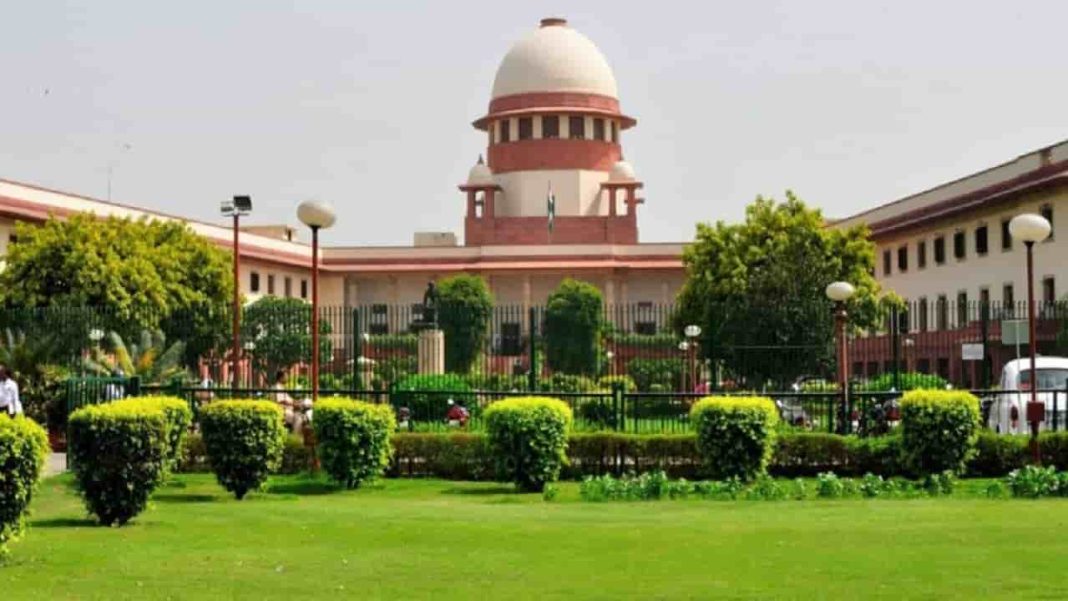The Supreme Court has set up a high-level panel to examine the environmental issues arising out of the visit by a large number of devotees to the temples located inside the core area of Sariska Tiger Reserve in Rajasthan.
The Division Bench of Justice B.R. Gavai, Justice J.B. Pardiwala and Justice Sanjay Kumar stated that on perusal of an affidavit submitted by the Deputy Forest Conservator and the Deputy Field Director of Sariska, it came to know that the state government was attempting to find out a solution to the problem of lakhs of worshippers visiting the temples situated in the core area.
Noting that in order to find a complete solution, it was necessary for a body of experts to sit together and come out with an everlasting solution, the Apex Court formed the panel on Wednesday, directing the members to furnish a report within six weeks.
The Division Bench was apprised by Amicus Curiae K. Parameshwar that the ingress of pilgrims in the core areas of wildlife sanctuaries posed a grave problem by making it difficult for the instances of poaching to be brought under check.
He said the primary problem was that two-wheelers were permitted inside the core area, adding that the Wildlife authorities were unable to use radio-tagging on two-wheelers, which had become one of the principal reasons for poaching.
Parameshwar further said that lakhs of devotees visited the temples on some days, particularly during the month of Savaan. This happened during monsoons, which was the breeding season for many animals.
He further said that the problem persisted throughout the country as many places of religious worship were situated inside the sanctuaries and national parks, which remained closed during this time.
As per the Amicus Curiae, the rule that the sanctuary or national park was to remain closed for monsoon did not apply in these cases, owing to government circulars to that effect.
He mentioned the circular issued by the Rajasthan government, which permitted the pilgrims to enter the temples during the auspicious days of Savaan. Parameshwar further gave examples of Sabarimala, Tirupati and Srisailam in this regard.
Appearing for the State of Rajasthan, Additional Advocate General Manish Singhvi said while the state government wanted the devotees to come to the temple, it did not want the sanctuary to be damaged.
Seeking a time of 4-6 weeks, the AGA said the state government was working on the matter and would come back with a plan on how to make the devotees visit the temples without causing harm to the environment.
Additional Solicitor General (ASG) Aishwarya Bhati suggested the top court of the country to issue a direction requiring representatives from the Ministry of Environment, Forest, and Climate Change (MoEFCC), National Tiger Conservation Authority and the Wildlife Institute of India in Dehradun to sit with appropriate officers of the state government and find a solution.
The Apex Court agreed to the suggestion and directed for the constitution of an expert committee comprising the Principal Chief Conservator of Forest, the Chief Wildlife Warden of Rajasthan, Additional Forest Secretary, a Joint Secretary rank officer of MoEFCC and a representative of NTCA.
The orders were passed on an interlocutory application filed in the T.N. Godavarman Thirumulpad case, an omnibus forest protection matter, in which the top court of the country had issued the longest-standing continuing mandamus in the field of environmental litigation.
A petition was filed in the Supreme Court in 1996 seeking protection of Nilgiris forests. Since then, the Apex Court has passed many orders regarding deforestation, mining, logging, compensatory afforestation and endangered species.
The top court of the country stepped beyond its traditional role of interpreting the law and took over the day-to-day governance of Indian forests
A Central Empowered Committee (CEC) was constituted in 2002 to monitor the implementation of the Apex Court’s orders and to bring to its attention, the incidents of non-compliance.


